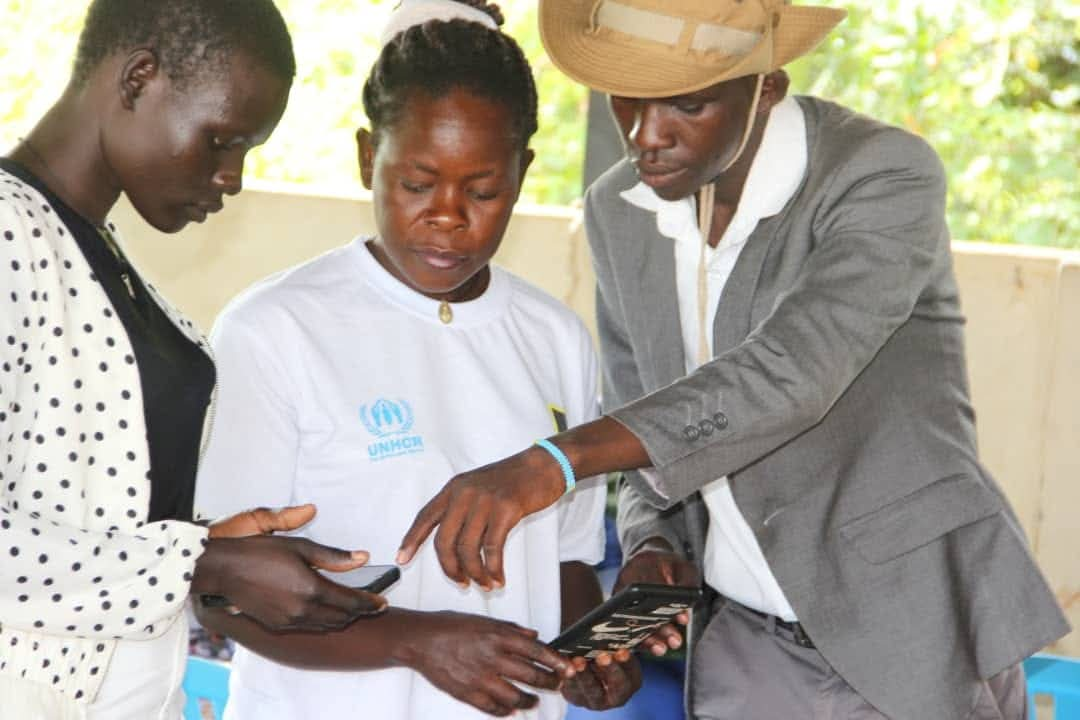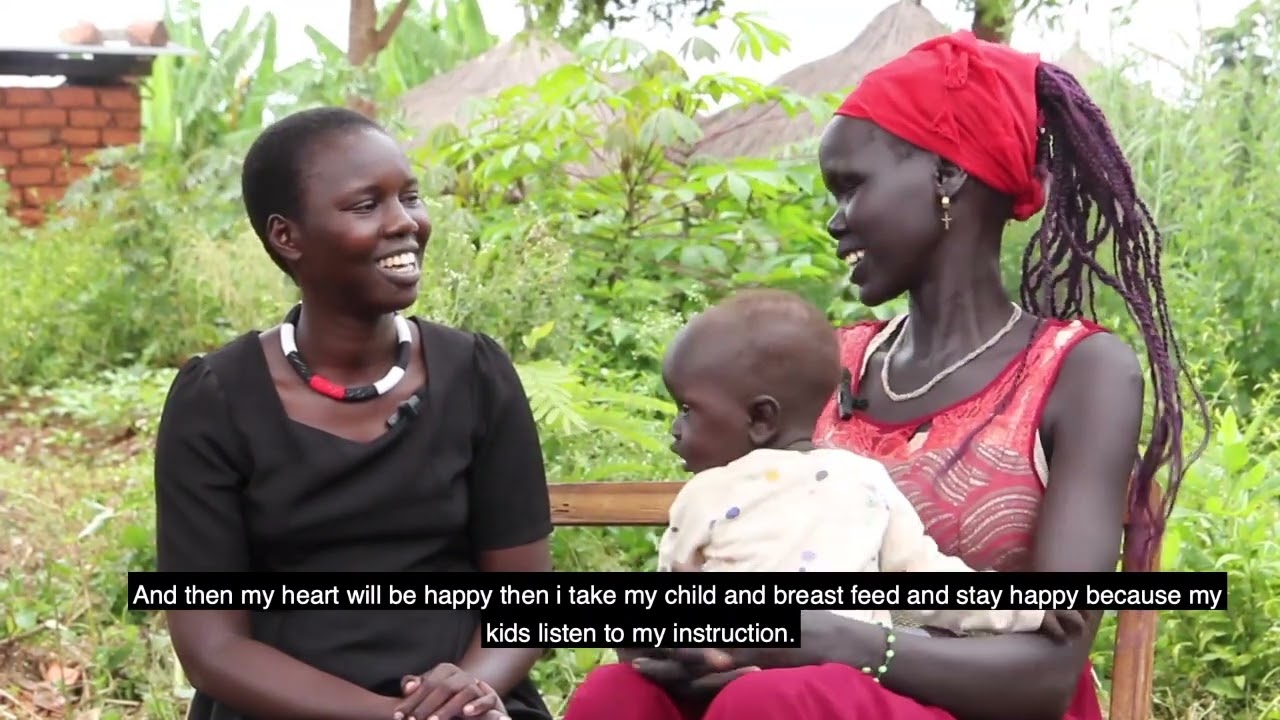When Culture Meets Innovation: How CECI, and Mama Marasaki Village Are Empowering South Sudanese Women in Uganda under The ASKNET Project

What happens when women displaced by conflict decide to lead, not just survive? In the heart of Bidi Bidi Refugee Settlement, the world’s second-largest refugee camp, a group of South Sudanese women are rewriting the narrative of displacement, proving that leadership and innovation can thrive even in the most challenging environments.
At the heart of this story is a unique collaboration facilitated by the Access to Skills and Knowledge Network (ASKnet), bringing together CECI Uganda, a youth-led organization founded by refugees in Uganda’s West Nile region, and Mama Marasaki Village from Juba, South Sudan.
These two organizations, driven by a shared mission to empower refugees and women affected by crises, have united to create a powerful platform for South Sudanese women leaders in displacement.
The collaboration is not just about survival—it’s about celebrating culture, fostering digital innovation, and building inclusive leadership that transcends borders.
The ASKnet collaboration has been the catalyst for this transformative project, providing the tools, resources, and networks necessary to connect communities across South Sudan and Uganda.
Through ASKnet’s support, CECI Uganda and Mama Marasaki Village launched a series of programs that focus on cultural preservation, women’s leadership, and digital empowerment.
In 2023, this partnership kicked off with a two-day workshop and a cultural gala that brought together Sudanese, Congolese refugees, and host communities from Koboko and Maracha District.
The event celebrated diversity through traditional dances, arts, and storytelling, laying the groundwork for deeper collaborations in 2024.
"ASKnet isn’t just a network; it’s a lifeline that connects displaced communities with opportunities for growth and leadership," said a representative from CECI Uganda.
Building on the success of their 2023 collaboration, CECI Uganda and Mama Marasaki Village turned their focus to South Sudanese women’s leadership in displacement in 2024. The project, centered in Bidi Bidi Settlement, engaged 34 women leaders from various zones within the camp.The initiative was designed to blend traditional cultural practices with modern digital tools, empowering women to not only preserve their heritage but also to share their stories with the world.
Digital Media Training: Turning Culture into Content
A key component of the project was a three-day digital and social media training for young women. This training covered everything from personal branding and content creation to animation and social media marketing.
Participants learned how to build impactful online profiles, measure engagement, and use digital platforms to amplify their voices.
"Before this training, I didn’t know how powerful social media could be," said one participant. "Now, I’m using it to share our traditions and stories with people far beyond the camp."
This digital literacy has enabled these women to become cultural ambassadors, using technology to bridge gaps between their South Sudanese heritage and the broader global community.
Cross-Cultural Dialogues: Leadership Beyond Borders
The project also featured a series of cross-cultural dialogues that brought together women leaders from South Sudanese, Congolese, and host Ugandan communities.
These dialogues focused on women’s leadership in cultural preservation and explored how traditions can be maintained in displacement settings.
The discussions began with storytelling sessions where participants shared their personal journeys, cultural identities, and leadership experiences. This created a space for mutual learning and solidarity among women from different backgrounds.
"Our stories connect us,"said one of the leaders from the host community. "Through sharing, we find common ground and build stronger communities."
On the second day, the women reflected on their efforts to preserve South Sudanese customs, norms, and traditions within the refugee setting.
They discussed the challenges of maintaining cultural identity in displacement and developed action plans for promoting and protecting their heritage.
Intergenerational Leadership: Building the Future Together
The final phase of the project brought together young women and established women leaders for an intergenerational dialogue. This session focused on merging the energy and innovation of the younger generation with the wisdom and experience of their elders.
Together, they deliberated on action points generated from earlier sessions, addressing two key questions:
What is working well in promoting and preserving positive cultural norms and traditions in displacement?
What can young women and women leaders do differently to better contribute to cultural preservation?
This intergenerational approach ensured that the legacy of leadership and cultural preservation would continue across future generations, with young women poised to take on greater leadership roles in their communities.
"We’re not just learning from the older women—we’re also teaching them how to use digital tools to share our culture," said a young participant. "Together, we’re stronger."
The impact of the ASKnet collaboration has been profound. Women who once saw themselves as mere refugees now view themselves as leaders, innovators, and cultural ambassadors.
They are using the skills and knowledge gained from this project to lead community initiatives, advocate for women’s rights, and preserve their heritage for future generations.
"This isn’t just about preserving culture—it’s about reclaiming our identity and leading our communities toward a brighter future," said one of the women leaders from Zone 3 in Bidi Bidi.
The collaboration between ASKnet, CECI Uganda, and Mama Marasaki Village has shown that when communities come together, even in the face of displacement and adversity, they can create powerful networks of support, leadership, and innovation.
As these women continue to tell their stories, share their culture, and lead their communities, they are proving that displacement does not define them—their resilience, leadership, and culture do.
Click to watch The video—Documenting the Lives of South Sudanese Women In Displacement
